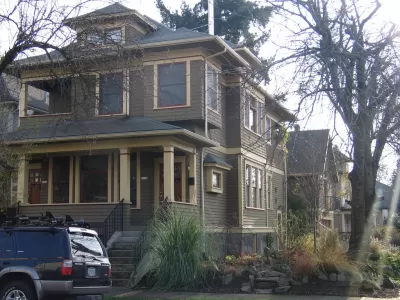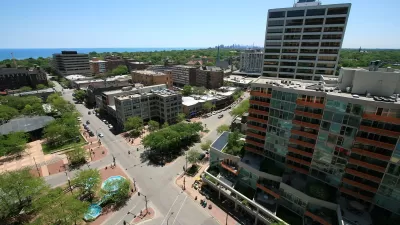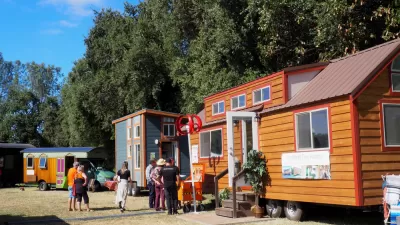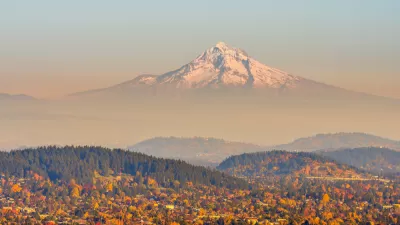Cities like Austin, Denver, Los Angeles, Portland, and now Seattle are pursuing equity-based agendas for ADUs.

Accessory dwelling units are often seen as a path to missing middle housing, allowing cities to add housing supply to low-density neighborhoods. And in Seattle, they've also been eyed as a tool to prevent the displacement of low-income homeowners. But the city's new Racial Equity Toolkit on Policies for Accessory Dwelling Units [pdf] suggests that ADUs would primarily benefit the higher-income, white homeowners building them.
"The RET found changes to ADU policy would result in race-based disparities, notably that wealthy white homeowners would benefit the most from the proposed policy changes," Natalie Bicknell writes in The Urbanist. "Simply put, White households are significantly more likely to own a single-family home and also have the financial resources needed to add an ADU to their property."
Seattle released the Racial Equity Toolkit alongside its Environmental Impact Statement on ADUs.
FULL STORY: Study Reveals Wealthy White Homeowners Benefit Most from Backyard Cottages

Study: Maui’s Plan to Convert Vacation Rentals to Long-Term Housing Could Cause Nearly $1 Billion Economic Loss
The plan would reduce visitor accommodation by 25,% resulting in 1,900 jobs lost.

North Texas Transit Leaders Tout Benefits of TOD for Growing Region
At a summit focused on transit-oriented development, policymakers discussed how North Texas’ expanded light rail system can serve as a tool for economic growth.

Using Old Oil and Gas Wells for Green Energy Storage
Penn State researchers have found that repurposing abandoned oil and gas wells for geothermal-assisted compressed-air energy storage can boost efficiency, reduce environmental risks, and support clean energy and job transitions.

Private Donations Propel Early Restoration of Palisades Playground
Los Angeles has secured over $1.3 million in private funding to restore the Pacific Palisades playground months ahead of schedule, creating a modern, accessible space that supports community healing after recent wildfires.

From Blight to Benefit: Early Results From California’s Equitable Cleanup Program
The Equitable Community Revitalization Grant (ECRG) program is reshaping brownfield redevelopment by prioritizing projects in low-income and environmental justice communities, emphasizing equity, transparency, and community benefits.

Planting Relief: Tackling Las Vegas Heat One Tree at a Time
Nevada Plants, a Las Vegas-based nonprofit, is combating the city’s extreme urban heat by giving away trees to residents in underserved neighborhoods, promoting shade, sustainability, and community health.
Urban Design for Planners 1: Software Tools
This six-course series explores essential urban design concepts using open source software and equips planners with the tools they need to participate fully in the urban design process.
Planning for Universal Design
Learn the tools for implementing Universal Design in planning regulations.
Ascent Environmental
Borough of Carlisle
Institute for Housing and Urban Development Studies (IHS)
City of Grandview
Harvard GSD Executive Education
Toledo-Lucas County Plan Commissions
Salt Lake City
NYU Wagner Graduate School of Public Service





























